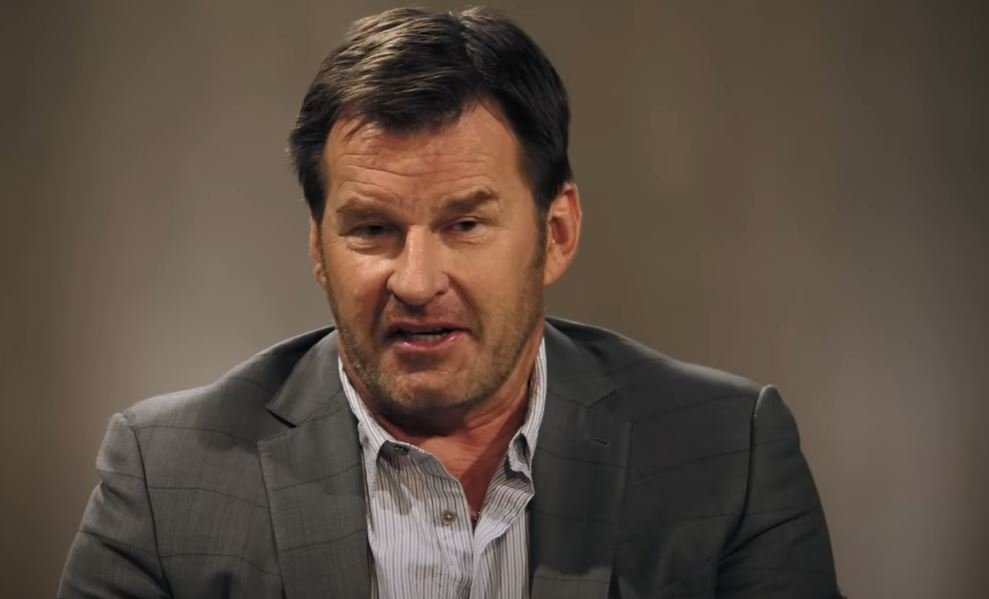
Nick Faldo has painstakingly built a career over the last fifty years that seamlessly shifted from athletic prowess to business savvy. Faldo, a 20-year-old Ryder Cup rookie, initially gained notoriety for his textbook swing and laser-sharp focus. The Hertfordshire teen, who hadn’t touched a golf club until he was 14, was first motivated by watching Jack Nicklaus on TV. He was not deterred by the delay. Faldo became the dominant force in European golf in a very short period of time, establishing a benchmark for accuracy and consistency.
He won six major championships, which is still unheard of among British golfers, by using an unwavering mindset and an almost scientific approach to course management. His current net worth of $60 million was notably accumulated through a variety of post-retirement endeavors that have proven to be incredibly effective and resilient, in addition to prize earnings.
Nick Faldo Net Worth and Biography Overview
| Attribute | Details |
|---|---|
| Full Name | Sir Nicholas Alexander Faldo |
| Date of Birth | July 18, 1957 |
| Age | 67 |
| Birthplace | Welwyn Garden City, Hertfordshire, England |
| Nationality | British |
| Height | 6 ft 3 in (1.91 m) |
| Occupation | Golfer, Broadcaster, Businessman |
| Major Titles | 3 Masters (1989, 1990, 1996), 3 Open Championships (1987, 1990, 1992) |
| Career Victories | 43 (including 6 Majors) |
| Estimated Net Worth | $60 Million |
| Key Ventures | Faldo Design, CBS Sports, Faldo Series, Golf Academies |
| Marriages | 4 (Melanie Rockall, Gill Bennett, Valerie Bercher, Lindsay De Marco) |
| Children | 4 |
| Current Residence | Bozeman, Montana, United States |
| Notable Honors | Knighted in 2009, World Golf Hall of Fame (1997), Payne Stewart Award |
Faldo stood out in the 1990s by remaining ruthlessly strategic at a time when American superstars like Tiger Woods were gaining popularity. His deliberate comeback to surpass Greg Norman at the 1996 Masters is still analyzed by experts for its psychological genius. In addition to being his final major victory, that victory cemented his status as a media attraction.
The timing of Faldo’s switch to broadcasting was especially ideal. He established a second career that was not only steady but also unexpectedly lucrative by signing with CBS and the Golf Channel. His alleged $8 million CBS contract was part of a trend where networks were making significant investments in real, well-spoken commentators. Viewers found Faldo’s clipped British language and analytical delivery to be remarkably clear and different from that of American color commentators.
Faldo’s influence extended well beyond commentary booths through alliances. He founded Faldo Design, a golf course architecture company that has worked on over 50 projects all over the world. Many of these have received accolades for their creative layouts and attention to the environment, which will especially help the developing golf markets in Asia and South America.
At the same time, his philanthropic signature became the Faldo Series, a youth development initiative. By coaching young players in 30 different nations, Faldo made a substantial contribution to the sport’s future. The initiative, which was sparked by his own early struggles, is especially creative in the way it opens doors for underrepresented young talent by fusing elite training with accessibility.
His personal life changed more erratically as his business empire expanded. Faldo’s four marriages have all been well-publicized, and the settlements for his divorces have reportedly cost more than $20 million. His total net worth held up remarkably well in spite of these financial setbacks. Long-standing brand alliances with businesses like Audemars Piguet and the Marriott golf resorts are responsible for this financial stability. Long after Faldo retired from full-time competition, his name continued to hold prestige and value thanks to these carefully chosen and calculated partnerships.
Faldo’s commentary has become more introspective in recent years. After 16 years at CBS, he signed off during the 2022 Open Championship, his voice breaking with emotion. That intensely moving moment, which was broadcast on television all over the world, demonstrated the close bond he had developed with his fans over many generations. Once renowned for his cold composure under duress, Faldo showed a more sympathetic, even sentimental, side.
Faldo’s financial path after his career is notable when contrasted with that of colleagues like Bernhard Langer or Colin Montgomerie. He is a brand architect in addition to being a retired golfer. He created a profitable and significant ecosystem by fusing media commentary, mentorship, and business design. Few sportsmen, especially in golf, have lived this long without becoming famous, bankrupt, or irrelevant.
Faldo’s model seems remarkably stable in the context of sports legends maintaining their relevance after retirement. His wealth portfolio, which includes speaking engagements, media appearances, and design royalties, is still very varied. His example provides an incredibly useful guide for athletes preparing for life after competition.
Faldo frequently stresses preparation, both on the course and in life, in both private discussions and public appearances. His endeavors are still shaped by this philosophy, which is ingrained in his DNA. He applies the same methodical approach that once allowed him to dominate world leaderboards, whether he is mentoring young players through the Faldo Series or providing remarkably in-depth analysis of Augusta’s 12th hole.
Faldo may initially come across as the British man in the booth to younger golf fans who are learning the sport from YouTube or social media. Beneath that position, however, is a competitor whose career was built on accuracy and maintained on cunning. His current financial situation, which is comfortably at $60 million, is not by chance. It embodies the tradition of dominance, strategic vision, and unwavering determination that have characterized Nick Faldo’s career since his first swing at the age of 14.
